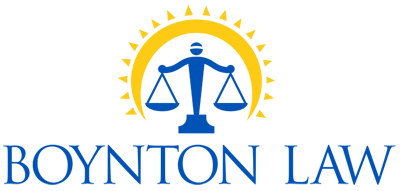Florida Homestead Laws – Two Noteworthy Aspects
There are generally two important facets to Florida’s homestead exemption laws. The first aspect concerns lowering ad valorem property taxes and the second aspect involves asset protection and shielding the homestead property from the owner’s judgment creditors – both providing some contemporary meaning to the old adage “my home is my castle.”
With respect to the reduced ad valorem tax assessment, Florida homeowners may thank the Great Depression because it was during the Depression when many people had no money to pay their property taxes (and faced losing their homes) that the first legislation was passed to provide some tax relief. In 1934 the Florida voters overwhelmingly approved the Florida Homestead Exemption Amendment, which exempted the first $5000 of a property owner’s house (so long as the house was the owners permanent residence). In the 1960s the Florida Legislature passed a statute increasing the exemption to $10,000. In 1980, the Florida voters approved a constitutional amendment increasing the exemption to $25,000, which was doubled to $50,000 in 2008, where it remains today.
The homestead tax exemption clause is found in the Florida Constitution, Article VII, Section 6 and Florida Statutes 196.031. To illustrate by way of a very simple example, assuming a qualified homeowner was eligible for the full $50,000 exemption amount, under Florida law, the tax base on a primary/permanent residence with a tax assessed value of $215,000, would be $165,000 ($215,000 minus $50,000 = $165,000). In other words, the homeowner does not pay any taxes on the first $50,000 of the tax assessed value.
Another important tax savings feature of the Florida homestead exemption laws is the “Save Our Homes” provision, which took effect in 1995. Generally speaking, Save Our Homes put a cap of 3 percent on increases in assessed home values for property taxes, notwithstanding higher than 3 percent increases in the market value. This means that if the real estate market is soaring from one year to another and property values increase by lets say 10%, for tax assessment purposes the increased value of the property on the tax roll is capped at 3%. This is a significant savings over time for homeowners, but more importantly, a great protection for longtime homeowners on a fixed income who were at risk of losing their homes because they could not afford to pay the taxes in a bull market.
The 2008 Amendment, in addition to increasing the exempt amount to $50,000, also included a “portability” provision, which closed what some people described as a loophole in the original Save Our Homes Amendment. The portability feature gives a homeowner the option to carry up to $500,000 of the accrued tax savings benefit from one homestead property to another. Without the added portability feature, the capped tax value on the old home automatically terminated and the new home was assessed at full market value as of January 1 of the year purchased. Although transfer of the tax benefit must be made within 2 years of selling the original homesteaded property, the benefits may be applied to either a bigger more valuable home or a downsized smaller one.
With respect to asset protection, the homestead exemption clause under Article X, Section 4 of the Florida Constitution (and its legislative counterpart codified in Chapter 222, Florida Statutes), states that homestead property is “exempt from forced sale under process of any court.” This means that a judgment creditor may not force the sale of a person’s home to satisfy a judgment against the homeowner-debtor, so long as the debt has nothing to do with the homestead property. In other words, the Constitution does not shield the property against tax liens, mechanic’s liens incurred to repair or improve the homestead, a mortgage obligation, or a lien for unpaid dues or assessments by the homeowner association. These types of debts stem directly from the property itself and as such, fall outside the homestead exemption.
To be eligible for creditor protection, the owner-debtor must be a permanent Florida resident and must physically occupy the homestead property as his or her primary place of residence. Other houses, such as a second home or an investment property, do not qualify and are not protected under Florida’s homestead laws. That said, if the property is deemed to be protected homestead, there is no dollar limit, which means 100 percent of the value of the property is judgment proof – whether the home is worth $50,000 or $5 million, it is protected against the claims of creditors.
For more information about homestead protection in Florida, call the experienced Boynton Beach real estate attorneys at (561) 269-6866 (BOYNTON).

